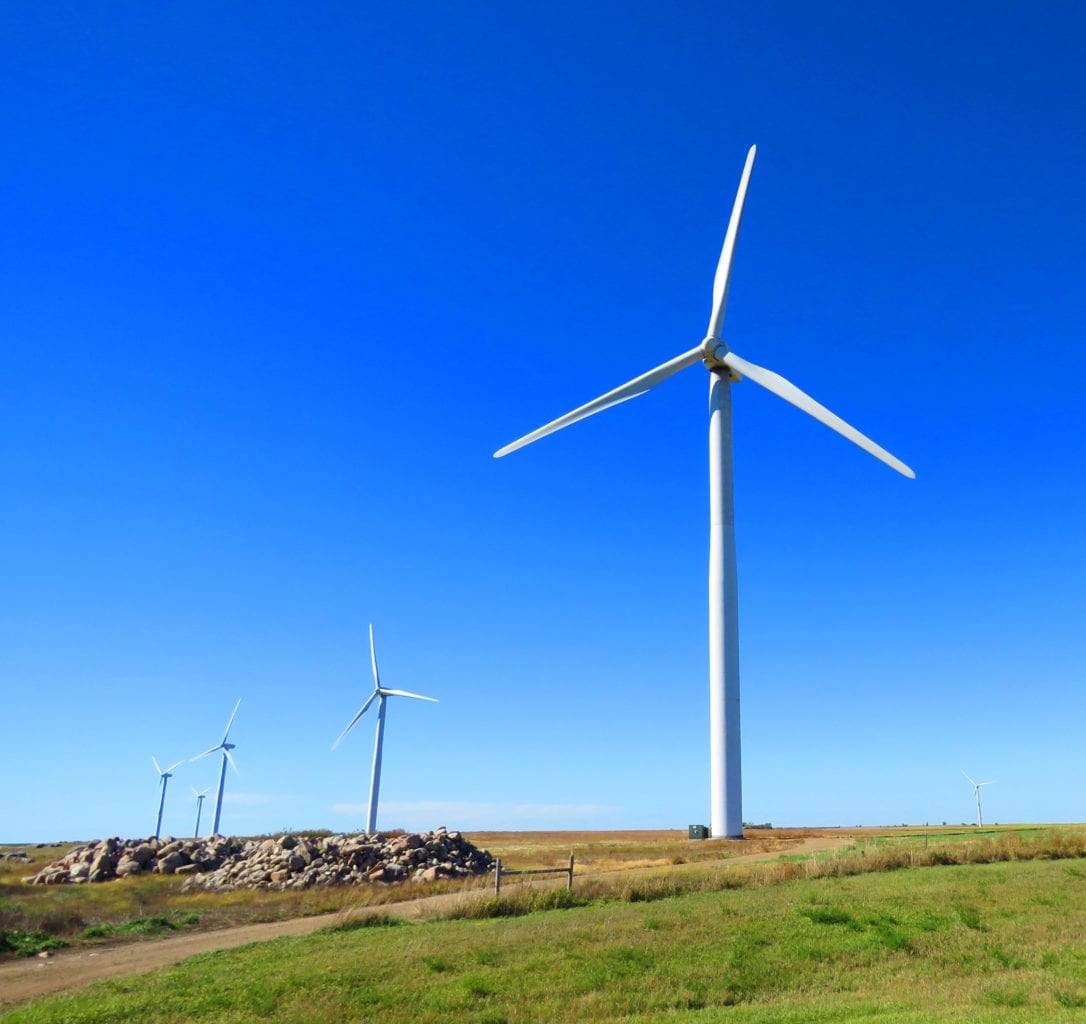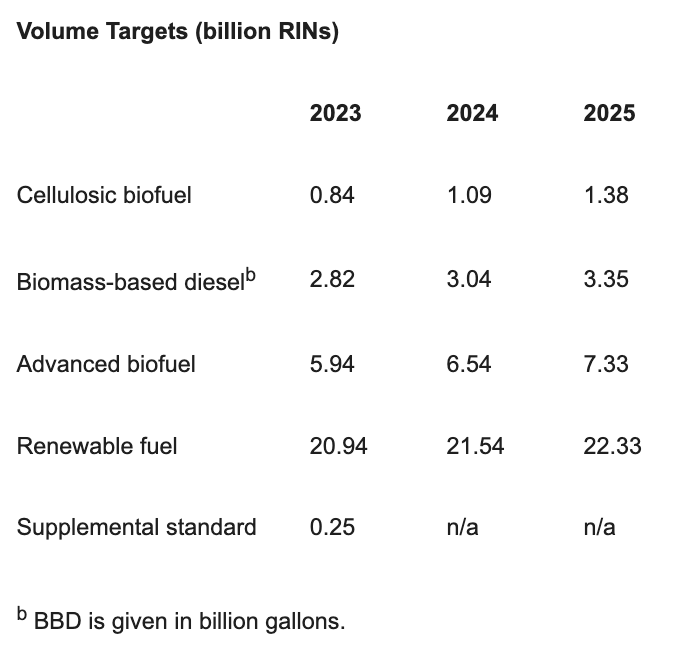Staff Report –
WASHINGTON, D.C. — The Biden administration made moves this week to strengthen the nation’s energy independence, advance low-carbon fuels and support agricultural communities as well as fight climate change due to global warming from the burning of fossil fuels for energy and transportation.
The Environmental Protection Agency issued a final rule under the Renewable Fuel Standard program that establishes the biofuel volume requirements for 2023 to 2025, and builds on the RFS program’s progress over the previous two years. It strengthens U.S. energy security by reducing reliance on foreign sources of oil by roughly 130,000 to 140,000 barrels of oil per day over the time frame of the final rule, 2023–2025, the agency says in a press release.
The final rule also discusses EPA’s intent to monitor the ongoing implementation of the Renewable Fuel Standard program and its impacts on domestic refineries, which have a critical role to play in our energy security.
“From day one, EPA has been committed to the growth of renewable fuels that play a critical role in diversifying our country’s energy mix and combatting climate change, all while providing good paying jobs and economic benefits to communities across the country,” EPA Administrator Michael Regan said in the announcement.
“Today’s final rule reflects our efforts to ensure stability of the program for years to come, protect consumers from high fuel costs, strengthen the rural economy, support domestic production of cleaner fuels, and help reduce greenhouse gas emissions,” he said.
The Set Rule establishes the biofuel volume requirements and associated percentage standards for cellulosic biofuel, biomass-based diesel (BBD), advanced biofuel, and total renewable fuel for 2023–2025. It also completes EPA’s response to a court remand of the 2016 annual rule by establishing a supplemental volume requirement of 250 million gallons of renewable fuel for 2023.
The final volume targets are as follows:
The Set Rule includes steady growth of biofuels for use in the nation’s fuel supply for 2023, 2024, and 2025. The Energy Independence and Security Act (EISA) of 2007 does not specify statutory volumes after 2022, and EPA in this rule is establishing final biofuel volume targets for all categories under the “set” authority provided by the Clean Air Act.
When determining biofuel volumes for years after 2022, EPA must consider a variety of factors specified in the statute, including costs, air quality, climate change, implementation of the program to date, energy security, infrastructure issues, commodity prices, water quality and supply.
This final rule increases U.S. energy security by reducing U.S. oil imports by roughly 130,000 to 140,000 barrels of oil per day over the time frame of the final rule, the administration contends. The anticipated value of the energy security benefits to the U.S. economy ranges from $173-$192 million per year over the time frame.
In addition to setting the volume requirements, EPA is finalizing several regulatory changes intended to expand the use of biogas under the program while, at the same time, putting in place provisions that will improve the operation of the renewable fuels program.
“The final rule follows a robust engagement strategy and reflects comments from a diverse set of stakeholders on the potential economic impacts of the program,” the agency says. “EPA is committed to successful implementation of the program and intends to use all available data and tools to monitor the implementation of the RFS program and its impacts.”
For example, EPA will within 45 days meet with the Commodity Futures Trading Commission to make sure existing agreements between are sufficient to monitor renewable identification numbers trades for potential market manipulation.
In addition, EPA has identified a clear set of market indicators – from the costs to consumers of transportation fuel to the stability of fuel supplies and domestic refining assets – that it will continue to monitor in real time to ensure successful implementation.
EPA continues to assess the comments received on proposed regulations governing the generation of Renewable Identification Numbers, which are RFS compliance credits, for electricity made from renewable biomass that is used for transportation fuel. The EPA will continue to work on potential paths forward for that program, while further reviewing the comments received on the proposal and seeking additional input from stakeholders to inform potential next steps on the program.
Learn more on EPA’s website.
___
If you support truth in reporting with no paywall, and fearless writing with no popup ads or sponsored content, consider making a contribution today with GoFundMe or Patreon or PayPal. We just tell it like it is, no sensational clickbait or pretentious BS.
Before you continue, I’d like to ask if you could support our independent journalism as we head into one of the most critical news periods of our time in 2024.
The New American Journal is deeply dedicated to uncovering the escalating threats to our democracy and holding those in power accountable. With a turbulent presidential race and the possibility of an even more extreme Trump presidency on the horizon, the need for independent, credible journalism that emphasizes the importance of the upcoming election for our nation and planet has never been greater.
However, a small group of billionaire owners control a significant portion of the information that reaches the public. We are different. We don’t have a billionaire owner or shareholders. Our journalism is created to serve the public interest, not to generate profit. Unlike much of the U.S. media, which often falls into the trap of false equivalence in the name of neutrality, we strive to highlight the lies of powerful individuals and institutions, showing how misinformation and demagoguery can harm democracy.
Our journalists provide context, investigate, and bring to light the critical stories of our time, from election integrity threats to the worsening climate crisis and complex international conflicts. As a news organization with a strong voice, we offer a unique, outsider perspective that is often missing in American media.
Thanks to our unique reader-supported model, you can access the New American journal without encountering a paywall. This is possible because of readers like you. Your support keeps us independent, free from external influences, and accessible to everyone, regardless of their ability to pay for news.
Please help if you can.
American journalists need your help more than ever as forces amass against the free press and democracy itself. We must not let the crypto-fascists and the AI bots take over.
See the latest GoFundMe campaign here or click on this image.
Don't forget to listen to the new song and video.
Just because we are not featured on cable TV news talk shows, or TikTok videos, does not mean we are not getting out there in search engines and social media sites. We consistently get over a million hits a month.
Click to Advertise Here

















